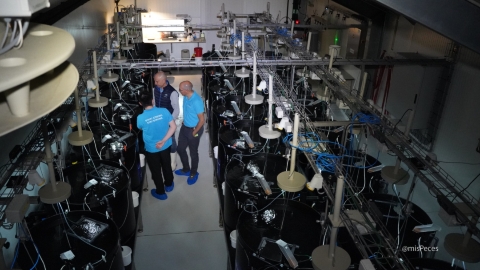
A diet focused on fish and shellfish consumption hold significant potential to enhance sustainability and contribute to global food security-provider the challenges of environmental and social pressures are addressed effectively.
The global food system is currently responsible for around one-third of greenhouse gas emissions and over 70% of freshwater usage.
In this context, research highlights that diets primarily sourcing animal protein from fish and shellfish-commonly referred to as “Blue Foods”-are among the most sustainable, outperforming pultry, eggs, and wild-caught fish. This is largely due to their lower requirements for freshwater, space, and feed compared to land-based livestock, making them a more sustainable option overall.
When it comes to wild-caught fish, studies indicate that the environmental impact varies greatly depending on the fishing method. Artisanal fisheries stand out as having the least impact, provided they avoid overfishing and employ responsible practices.
Among the least environmentally friendly animal proteins are red meat such as beef and lamb. These are highly resources-intensive, producing significant methane emissions while requiring vast amounts of land and water. Dairy products, while less impactful than red meat, also demand substantial resources and contribute to greenhouse gas emissions.
Fish and shellfish’s sustainability as food source stems from several factors, including their ability to efficiently convert feed into edible protein. This efficiency is largely attributed to the fact that most aquatic species are ectothermic (cold-blooded), meaning the expend less energy maintaining body temperature.
Another critical factor to consider is the value of by-products generated by fish and shellfish. These by-products can be repurposed in various ways, such as fertilisers or incorporated into integrated multi-trophic systems.
The nutritional value of fish also plays an important role. They are rich in omega-3 fatty acids and highly digestible protein, making them a nutritional powerhouse that should not be overlooked.


